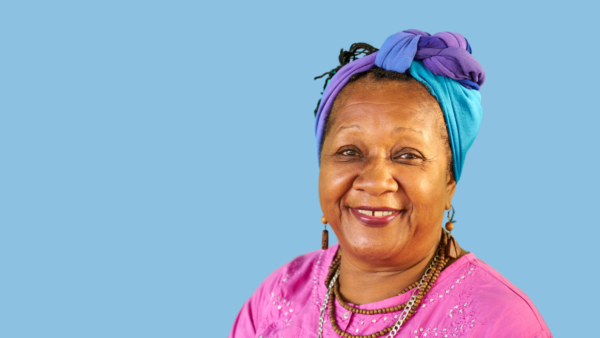Your social network can have a significant effect on your health – studies have shown that those with stronger social networks enjoy multiple physiological, psychological and long-term health benefits than those who lack social support. This is particularly important at times of pressure and stress, when a sense of isolation can lead to higher experienced stress levels. And what about at work? Today, I want to talk about the importance of cultivating a strong support network at work – what kind of people it might be most helpful to have around you and how to go about doing this.
People with stronger support networks both at work and outside of work experience the following health benefits (BTW, these studies are summarised really well by the King’s Fund, so check out their website to get to the sources): over 7 years, those with good social relationships had a 50% greater survival rate than those with poor social relationships.
Social networks have been shown to be as closely linked to your chances of dying as smoking, booze, obesity, high blood pressure and cholesterol. Without a strong social network, raised stress hormones can lead to damage to our immune and cardiovascular systems, as well as reduced motivation to engage in healthy behaviours. Recovery from illness is prolonged when you don’t have a good support network too.
Why might this be? Some research relates positive health outcomes to reduced chances of inflammation (as we know, the basis of all diseases) when we have people around us who we value; we also know that positive neurotransmitters and hormones like oxytocin kick in when we feel connected, and these hormones can reduce stress levels, which in turn improves immune system function, and that can reduce the chances of you getting ill. Also, if you’re less likely to engage in unhealthy behaviours with a stronger social network, it all stands to reason that you’re less likely to get ill or die.

If you’re to take this into the workplace, how can you build out a social network that works for you? My advice is to use an approach that I’ve found has helped dozens of people I’ve coached over the years. Specifically, to find people who can fulfil a number of roles for you. Make sure that these people energise you when you’re around them – some of them may be as challenging as they are supportive, but their presence or input shouldn’t drain you. Avoid the mood hoovers and move towards the energy radiators (that’s enough weird household analogies for now).
The roles I have in mind for this are: cheerleader, connector, collaborator, counsellor, coach, mentor and champion. Let’s take each one by one and go into them in a little more detail as to who these people are and why they’re important to have in your social network. I’m also going to mention which strength or strengths these people may have (in Strengthscope terms) which should make them a little easier to find.
1. Cheerleader – possibly the easiest person (or people) to find in your social network, these are the people you always go to for a positive injection of energy, enthusiasm and support. They have your back, they’re always supportive and they’ll remind you why you rock. All of it without trying because that’s just naturally the energy they bring…or how it works when the two of you get together. Most likely strengths that these people might have? Optimism and Enthusiasm.
2. Connector – a connector at work is something who themselves is really well-networked and well-connected – they just seem to know everybody and they love introducing people to people too. They seem to see the world as a network of people connections and they always know someone who’s going to be able to help… or they know someone who probably knows someone who can help. In a work context, these people are really helpful in you building out your own network and getting you help when you need it. Most likely strength is Relationship building, sometimes Collaboration. Although Collaboration is more likely to belong to…
3. Collaborator – this person is most likely to be a peer of yours either in your team or in another team or department, with whom you have similar interests and goals, maybe even something you need to work on together to get to a good outcome. The support they bring is to make you feel that you’re not alone on a project or on a mission but that you have someone who has just as much skin in the game as you. As I mentioned, their most likely strength is Collaboration, but of course, they will have many strengths, often different from yours, and if you’re going to combine forces in order to get to your goal, strengths sharing would be really useful – ask what can you bring to the table as well as what can they bring you?
4. Counsellor – a counsellor provides emotional support in your life and/or your work life. They may be an actual counsellor, but far more likely, they’ll be someone with strengths in Compassion and Empathy, with strong emotional intelligence, energised by helping and supporting other people when they need an emotional helping hand. So when you’re under stress or pressure or you have an experience that you just want to download to get it off your chest, the counsellor is the person you’re most likely to turn to.
5. Coach – when it comes to your support network, a coach doesn’t have to be an actual trained coach, more likely they’ll be someone who’s happy to work with you on specific challenges you’re facing and they’ll place the responsibility on you to get a good result. They’re likely to ask good questions, listen well and challenge you to stretch yourself, as well as make sure you do what you say you’re going to do. So in summary, they use good coaching skills. Strengths in play are probably Empathy, Developing others and maybe Results focus, so look out for these.
6. Mentor – I podcast on mentoring some time ago at Season 3, episode 11 on ‘Who needs a mentor anyway?’, so check that out for more, but mentors, unlike coaches, are more likely to have ‘been there and done it’ and they’re happy for you to learn from their experience. At their best, mentors will offer long-term support, guidance and wisdom – they’ll look you in the eye and give you advice and not pull back from it. Most likely strengths (although as usual, they could be any) are Self-confidence, Strategic mindedness and Leading.

7. Champion – finally, the champion is worth a mention. Champions or advocates can be very important, essential in some organisational cultures, if you want to progress in your career or build your brand. They may have some of the qualities and strengths of connectors, or mentors, but I feel they’re worth a separate mention because of their specific role. Champions will actively advocate for you in forums where you need to be more visible to advance your career. They’re likely to have strengths like Courage, Initiative and Persuasiveness, so expect to get invited to different events that they have thought of you for…and when invited, it’s advisable to say yes more often than no, because your champion has a stake in your success.
So many times when working with people I’ve coached on their networks, we discover together that they have few, if any, of the roles I’ve mentioned above covered by more than one person and often it will be a partner or parent or close friend who is the ‘go to’ for most roles, with some not considered at all. But the benefits of investing time in building out your support network are many:
1. You’ll be clear who to turn to for what type of support when you need it.
2. You won’t always be going to the same person for support, but instead, you’ll be mixing it up and spreading the love. People love to be asked to help, particularly in areas of strength for them, as it makes them feel valued and appreciated, so in building out your support network, you’re often giving back just as much as you’re taking out. Saying that, it’s always worth asking what you can do for your supporters in return for their support…what can you bring to them that they will value? They may say nothing, but it’s always worth the ask.
3. You’re more likely to access more of the health and well-being benefits that I talked about in the science bit at the start of today’s podcast.
4. You’re more likely to put yourself in a strong position to develop yourself in your role and in your career, because you have people alongside you for the long haul. What I’ve found over the years is that your support network will change a little over time, as you move around in your role and in your careers but most likely you’ll just continue to build out your network rather than seeing it shrinking as you’re more likely to stay close to people where you are both getting something from the relationship.
I hope you’ve found today’s podcast useful My advice? start building out your support network today, it’s such a worthwhile thing to do for your career and work life…and your health and well-being will benefit too. Till next time, enjoy those people.
This podcast is available on all major podcast platforms. Find it on Apple podcasts, Spotify, Google podcasts, Stitcher, ACast, TuneIn, Breaker and Soundcloud. Check out the back catalogue, (please) leave a review and subscribe to get them every Monday morning!
Subscribe










